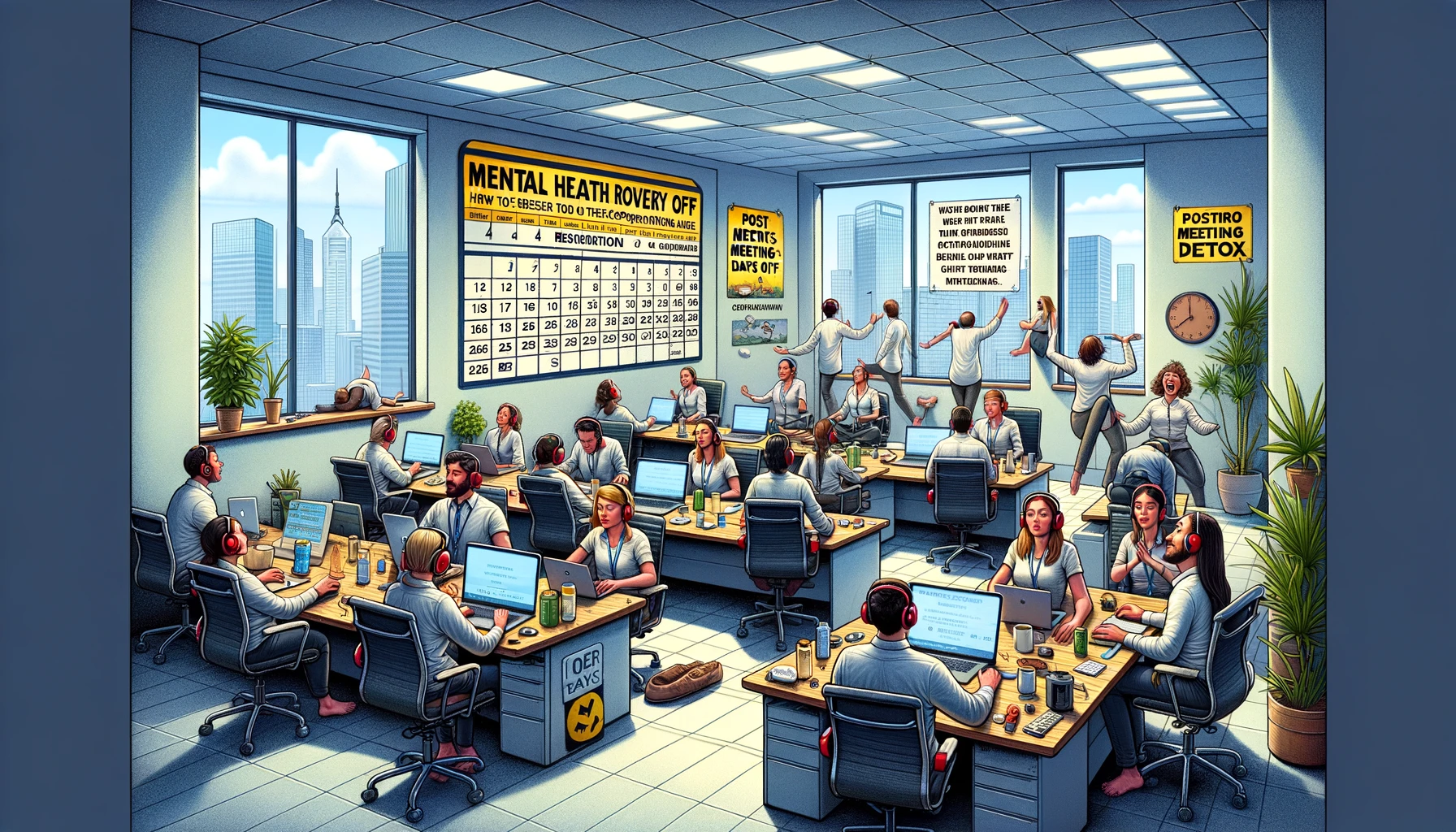
In a move baffling both mental health professionals and office-dwellers alike, corporations nationwide have begun a curious new initiative: offering mandatory mental health days to help employees recover from the soul-crushing trauma of company-wide meetings.
“We recognize the toll our death-by-PowerPoint presentations and endless brainstorming sessions about synergy can take,” acknowledged monolithic CEO Maximilian Profitsworth in a memo filled with enough buzzwords to make your head spin. “So, we’re giving you a paid day off to decompress…and hopefully not question the crushing futility of your existence within this behemoth of capitalism.”
The logic is twisted, yet strangely compelling. Employees now must endure meetings where half the attendees are secretly scrolling through “Mindfulness Apps” under the table – all to earn a day off to recover from the mind-numbing monotony of those very same meetings.
“It’s like fixing a flat tire by stabbing the other three,” observes frazzled executive assistant, Sarah Stapler. “I spent the entire meeting worrying about how I’ll spend my mental health day, and now I’m too stressed to even relax!”
Mental health professionals are both intrigued and appalled. “It’s like treating a patient’s self-inflicted wounds,” remarks Dr. Penelope Peacemaker. “While I applaud addressing the issue, perhaps corporations should focus on preventative care – like making meetings shorter, or banning the phrase ‘think outside the box,’ for starters.”
Of course, this new perk hasn’t eliminated the dread of the thrice-weekly “Innovation Huddle.” It’s simply added the stress of figuring out how to spend the mandated mental health day. Some opt for nature walks, only to be plagued by intrusive thoughts about upcoming project deadlines. Others attempt yoga but hear their manager’s voice instead of the instructor’s soothing tones.
In the end, this initiative reveals the absurdity of corporate culture, where even employee wellbeing gets twisted into yet another cog in the productivity machine. Perhaps true mental health won’t come from a day off, but from the collective realization that there has to be a better way to work, a way that doesn’t require a recovery period afterward.

